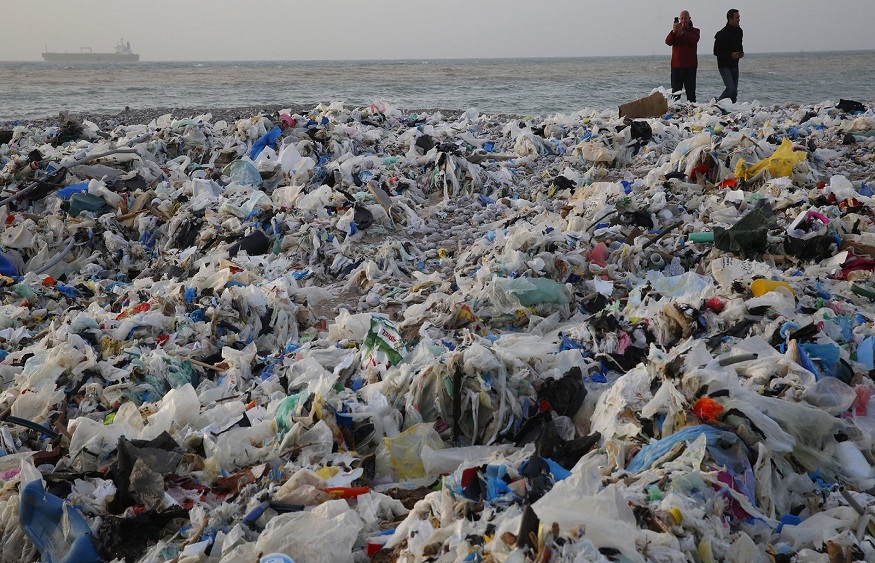12 Tips to Help You Reduce Plastic Waste

One of the most pressing environmental challenges of our time is the global plastic crisis, fueled by convenience and consumption. A once-hailed modern marvel, plastic has now inundated our planet, posing severe threats to ecosystems, wildlife, and human health.
You can protect the environment and conserve resources by reducing plastic waste in your everyday life. Here, we explore practical strategies and innovative solutions for reducing plastic use in our daily lives, empowering individuals to be champions of a more sustainable world.
How to Reduce Plastic Waste in Everyday Life
You can reduce plastic waste in your everyday life in many ways. As well as eliminating toxic chemicals from the environment and your home, this practice can also save you money. Minimising your plastic consumption is easy with these tips:
Use Reusable Bags
Always carry reusable shopping bags with you when you go grocery shopping or running errands. In this way, plastic bags that are single-use are reduced. If you are buying fruits and vegetables, use cloth or mesh bags instead of plastic ones. They are washable and reusable.
Bring Your Water Bottle
Using a reusable water bottle is better than buying bottled water. Tap water can be used to fill it up, avoiding the need for single-use plastic bottles.
Avoid Plastic Straws
Instead of plastic straws, use reusable alternatives such as stainless steel, bamboo, or glass straws.
No More Single-Use Cutlery
Avoid using single-use plastic cutlery and plates. Take reusable utensils and a lunchbox with you when eating on the go.
Buy Refillable Products
Buy refillable containers for soap, shampoo, and cleaning supplies. To reduce single-use plastic waste, many stores offer refill stations.
Choose Glass or Metal Containers
Instead of plastic containers, store leftovers in glass or metal containers. They are more durable and less likely to leach harmful chemicals.
Buy Bulk Foods
Make use of your reusable containers when buying bulk items like grains, pasta, and snacks. In this way, plastic packaging can be reduced. Consider purchasing products with minimal or recyclable packaging. When possible, choose glass, metal, or cardboard packaging over plastic.
Reduce Takeout Containers
Avoid plastic utensils and condiment packets when ordering takeout or food delivery. Eco-friendly packaging and delivery are available at many restaurants.
Beware of Microplastics in Cosmetics
Make sure personal care products don’t contain microplastics like polyethene and polypropylene. Instead, choose products that use natural exfoliants.
Recycle Properly
Ensure that you recycle plastic items in accordance with your local recycling guidelines. This prevents plastic waste from ending up in landfills.
Spread the Good Word
Stay informed about the environmental impact of plastic and share your knowledge with others. Encourage your friends and family to adopt plastic-reducing habits as well. What about challenging your neighbours to recycle more in the next month? You can also help remove plastic waste from natural areas by participating in or organising local cleanup events.
Invest in Plastic-Free Initiatives
Choose to support businesses and organisations committed to reducing plastic waste and promoting sustainability.
Remember that reducing your plastic waste isn’t about going zero-waste but rather about making your home and lifestyle as eco-friendly and sustainable as you can. A plastic-free home can be achieved through every action you take. Even professional house cleaning companies have already taken the initiative to reduce plastic by using recyclable cleaning supplies and washable cleaning cloths.
Benefits of Reducing Plastic Waste
Reducing plastic waste has a wide range of benefits both for the environment and society. Reducing single-use plastics will help:
Environmental Preservation
Preserving the environment is a significant benefit. Plastic waste can take hundreds of years to decompose, causing harm to ecosystems and wildlife. By reducing plastic waste, we can protect natural habitats and the creatures that depend on them.
Reduced Pollution
Less plastic waste means fewer plastic items end up in rivers, oceans, and on land, reducing pollution. The pollution of waterways by plastic poses many threats to aquatic ecosystems and their inhabitants.
Energy Conservation
Plastic production requires a great deal of energy. Reducing plastic consumption reduces the energy demand associated with manufacturing, resulting in lower greenhouse gas emissions and fossil fuel consumption.
Resources Conservation
Plastic is made of fossil fuels that cannot be renewed. As a result of reducing plastic waste, these finite resources will be preserved for future generations.
Animal Health
Plastic debris can be ingested by wildlife, resulting in injury or death. Reduced plastic waste reduces animals’ chances of consuming plastic, which can have devastating consequences for entire ecosystems.
Health Benefits
Some plastics contain harmful chemicals that can leach into food and beverages, possibly causing health problems. Using less plastic can mitigate these risks.
The reduction of plastic waste has numerous benefits, including environmental preservation, pollution reduction, cost savings, and improved health. As a result, our planet and its ecosystems can live more sustainably and harmoniously.
In Conclusion
Plastic waste reduction is an ongoing process, and small changes can make a big difference over time. Begin by incorporating a few of these tips into your daily routine, and gradually expand your plastic-reducing habits.
Ultimately, reducing plastic waste will save businesses, individuals, and governments money. Items that can be reused often last longer than disposable plastic ones, reducing the need for frequent replacement.
The drive to reduce plastic promotes innovation in alternative materials and recycling technologies. As a result, more sustainable products and processes can be developed.
Plastic waste reduction efforts often bring communities together for clean-up events, educational programs, and sustainable initiatives. As more individuals and businesses reduce their plastic consumption, a powerful message is sent worldwide.






